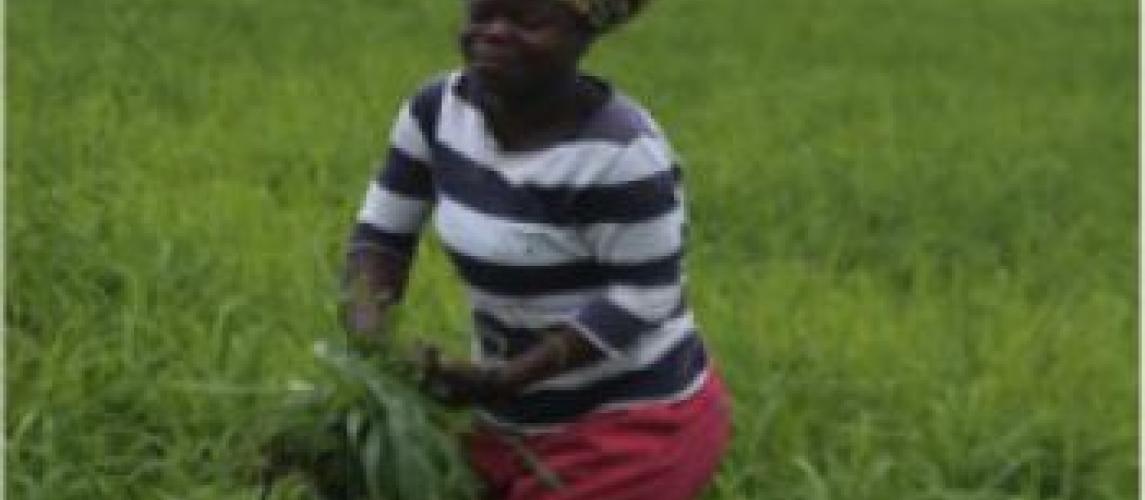
Liberians go back to the soil
A team from the West Africa Agricultural Productivity Program (WAAPP) Liberia on Tuesday visited Liberia’s lone Agricultural Research Institute CARI in Suakoko Bong County on a 3 day support mission, to assess the level of work at the cassava cuttings and rice seed multiplication centers. The projects are located in Suakoko, at the demonstration plots of the Research Institute and at the Kpatawee Waterfall, approximately 23 Kilometers from away from CARI’s main compound.
CARI received support from the WAAPP Liberia Project to carry out the multiplication of cassava cuttings and rice seeds that will be distributed to the various project counties for demonstration sites. The cuttings and seeds tested at these sites will later be given to farmers as support to their effort to grow more food.
According to the Interim Team Leader of CARI, Aaron Marshall who lead the WAAPP’s delegation on a tour of the project sites, the cassava cutting project currently has over 22 Hectares of 46 improved cassava varieties that are capable of having up to ten times more yields then the traditional cassava planted by Liberian farmers. Mr. Marshall however noted that 10 of the 46 improved varieties are well up coming and are the most promising, even though the rest are also doing very well. The remaining varieties are still being observed.
The CARI boss also indicated that the over one hundred laborers in the field with over 75% females are working daily to meet up with the deadlines for delivery. According the Interim Team Leader, CARI will deliver the total amount of rice seeds and cassava cuttings requested by the WAAPP Project long before the deadline. The improved varieties he said were supplied by IITA, Nigeria. He noted that there is an additional 2 hectares of traditional cassava that are ready to be crossed with the new and improved ones for more mixed varieties, this he said will be another form of testing, that will yield additional varieties.
The visit also took the team to the two separate sites for the rice seed multiplication at CARI main campus and Kpatawee Waterfall. The sites, totaling more than 32 Hectares and still increasing, have four basic varieties of up and low land rice; the Narica 14, Narica L-19, LAC 23 Red and ROK 5, all that are ready for harvest after two months of planting. The Institute has bagged over 4 metric tons of improved rice seed that are ready for distribution.
WAAPP National Project Coordinator J. Cyrus Saygbe, Sr. who lead the project delegation praised the level of work being done by CARI and the partners who have engaged in what he called great endeavors that will promote Liberia among other WAAPP countries during the next annual Wrap up Meeting expected to be held in Burkina Faso late October this year.
Mr. Saygbe also lauded the inclusion of more females on the project, way above the 40% female inclusion requirement. The Project National Boss reassured the CARI team of WAAPP Liberia fullest commitment and support to see their work progress. Referring to CARI as the engine that is expected to drive the project, since other counties will depend on the institute for cuttings and seeds, he pointed out that capacity building is paramount under the WAAPP – CARI agreement.
